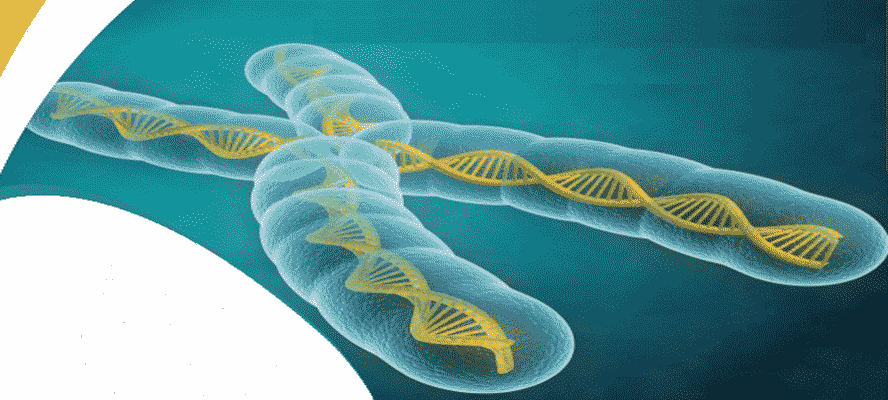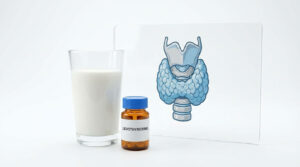Every cell in your body that has a nucleus carries a miniature you. Within the heart of the cell is stored all the information that has steered you into becoming who you are, barring, of course, environmental factors and non-genetic molecular changes that work even beyond the scope of DNA. Your DNA is a cache of information which predetermines aspects of your life ranging from your appearance to determining your likelihood of acquiring a disease in the future, or even, some say, to your psychological profile. What is stopping us from tapping into these abundant reserves of data to glean more about ourselves, and after knowing, to use this new-found information to our advantage
The use of DNA fingerprinting in forensics and paternity testing are the most common (although by no means mundane) applicable involving studying this signature of life in solving of the in solving our problems. today the world is stepping beyond niche applications of DNA profiling and bringind DNA testing to the common man beyond clinical domin. Who hasn’t wondered where their ancestors came from? Delvong into the more morbid questions, which disease are we most at the rish for? Genetic profiling can also answer which diet we can better benefit from,and which exercise may do us most good.All this information is reachable to us now with the advent of personal genomics.
What is Personal Genomics?
Personal genomics is a branch of genetics that involves the study of
the genome of one individual and interpreting this information in terms
of ancestry, disease risk, and the likelihood of expressing a particular trait.
Through rapid advancements in DNA sequencing techniques, personal
genomics has become faster and more affordable. There are several factors
that differentiate personal genomics from the traditional genetic testing
currently available, Direct to Consumer (DTC testing is one among them.
In today’s age, where everyone is health conscious and there is an abundance
of health-related information available on the internet, personal genomics can
be another tool for an individual to directly know their genomes which will
help them modulate their lifestyle as per their genetic code. Some famous
individuals who have already had genomes sequenced include Steve Jobs and
James Watson, of the DNA double helix fame. Watson was in fact, among the
very first to get his whole genome sequenced.
The procedure for getting a personal genomic scan is simple- an interested individual can simply book a test online and make the payment. The sample DNA can be shipped to the testing facility from all over the world in the form of cheek swab or spit sample. In a few weeks, the test results are made available to the consumer online or offline through post. Genetic counseling is also made available with such tests.
Personal genomics involve genome sequencing through either by use of microarray or sequencing which involves whole exome or genome. Single Nucleotide Polymorphism (SNP) is a variant of a single nucleotide (A, T, G or C) at a specific position in the genome. Exome is the coding region of our DNA that actually carries majority of our phenotypic information.
Why carry out a personal genomics scan?
Personal genomic scan can allow an individual to learn about their susceptibility
to certain diseases and response to specific drugs. The latter can help doctors
prescribe those drugs which will have maximum efficacy and minimal side effects.
Individuals who have a strong family history of certain diseases can opt for genome
testing, and if found positive, can undergo preventative measures. The famous case
of Angeline Jolie comes to mind, who was found to have a BRCA gene, pathogenic
mutation which increased her likelihood of developing breast and ovarian cancers by
72% and 25% respectively, so she decided to undergo preventive mastectomy
after her mother passed away of ovarian cancer at 56.
For some people, whole genome scans can identify if they are the carriers of disease
causing genes. In this case, the individual themselves do not show the symptoms of
the disease, but if their partner is also a carrier, their children may have a high
possibility of inheriting that disorder. Cystic fibrosis and sickle cell anemia are
examples of such inherited disorders. These couples can then undergo in-vitro
fertilization procedures that allows genetic testing of embryos to see if the offspring
has inherited the disease-causing gene variant.
Some of the common motivations for users of personal genome test include:
- For gaining health-related information
- To learn about genetic risk factors
- To help identify disease causing genotypic variants when a loved one is suffering from a lesser known inherited disorder
- Out of curiosity, to understand their ancestry
- Modify diet, lifestyle, habits and everything else within our control
Assessing the value of Genome Scan results
The value of genetic test results can be based on four aspects:
Whether this information has clinical applications: if it can
be used to devise treatment plans or for disease management
Clinical application of DTC testing is still limited, as risk evaluation to clinical development involves many complicated
physiological processes. As per disclaimers of the companies that run these tests, personal
genomic tests are not to be considered as medical tests. With that in mind, once the likelihood
of a disorder is indicated in these tests, the individual may have to get confirmatory
diagnostics in the future.
The accuracy of the predications
Since research in personal genomics is still developing, the predictive power of DTC is
projected as odds ratio has to be taken in consideration with other risk factors.
This is explainable by the fact that the path starting from to a geng leading to its
corresponding disease is a long one and involves other aspects including epigenetic
and environmental factors, which are still being studied. Yet, there is no reason why
these predictions cannot be taken as the first step into improving our lifestyle and to
include steps towards preventing conditions we are most at risk for.
Its value as a personal risk assessment tool
DTC tests can be viewed both in positive and negative light.
For some, seeing something that they always suspected to be
corroborated by a genetic test is reassuring. For some, a personal
genome tests may not reveal something new, as they would
already know that a particular condition runs in their family.
Limitations
Personal genomics, like most new ideas, is not safe from criticism. Many people worry about the
psychological impact of all this information, especially those involving disease risk.
For instance, the mere presence of a disease coding gene does not necessarily mean
that the individual will suffer from the disease at any point of their life. Further,
the utility of the test has also been brought to question. There is also concern that
the consumer is not
equipped with the knowledge to interpret the results they receive. People are, after all,
much more than their DNA.
There is also some degree of variation in the accuracy and reliability of different DTC tests. Most diseases are complex and are influenced by multiple factors, both genetic and environmental. As a result, there is a wellfounded concern about people taking major medical decisions based on these tests without involving a genetic counselor. The risks described by these tests have to be provided within context so as to not cause unnecessary anxiety.
Finally, there are also privacy concerns. Our personal lives are already up for display on social networking sites, but what can be more personal than our DNA? Our genome is a goldmine of information for those looking to advertise their products that are related to health and disease, or for health insurers who can use it to get a good idea of people at risk and thus set the price of their services accordingly.
In Conclusion
So far, the major issue with genetic profile tests
is the lack of ongoing research to bring these results into context. I know, am at a
greater risk for suffering from male pattern baldness- now what? How do these
predictions translate into meaningful and actionable prevention or treatment plans?
In some cases, personal genome results have been a wake-up call, especially for those
who were found to be at higher risk for type 2 diabetes you have genes that increase the risk
for these kind of preventable diseases, you might be more inspired to focus on your diet
and make litestyle changes to avoid that fate. This empowers people to take their health
into their own hands.
For others, personal genome sequencing has helped solve the
mysteries of their medical conditions which have so fan remain unexplained. Whether
it is to confirm if they have indeed inherited a disorder or they watched their
parents/grandparents deal with, or to identify the genetic culprit behind a condition
they have long been suffering from Users who wish to benefit from personal genome
tests have to well understand that these results do not substitute a doctor’s expertise.
These technologies are still in their infancy, and are not deterministic, but sh informed
lifestyle changes with the guidance of a healthcare professional.
On a lighter note, one can simply use personal genome tests to identify their ancestry,
if such things interest them.








